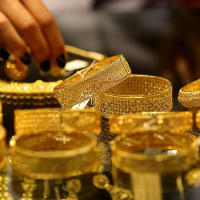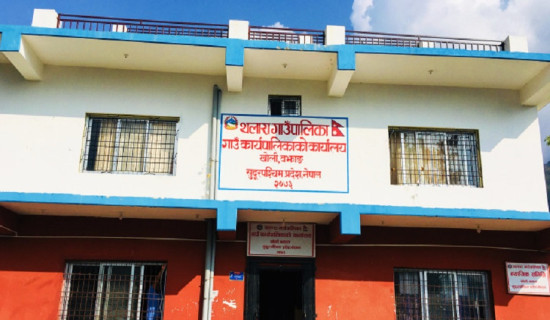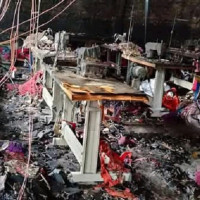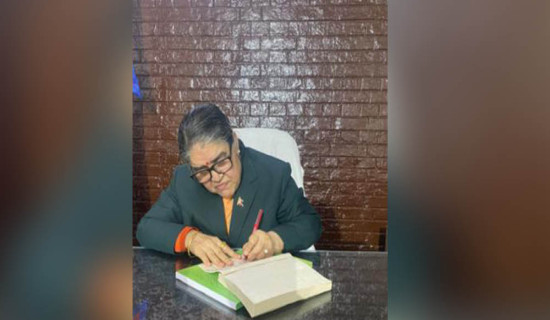- Wednesday, 16 July 2025
Christmas greetings
By A Staff Reporter,Kathmandu, Dec. 25: President Ramchandra Paudel has wished happiness, peace and good health to all Christians and Nepali sisters and brothers residing in Nepal and abroad on the occasion of Christmas Day.
In the message, the President said that festivals like Christmas play a vital role in fostering mutual harmony, tolerance and solidarity among communities with diverse cultural and religious identities.
He emphasised that such celebrations strengthen national unity and cohesion.
President Paudel also wished that this festival inspire all Nepalis to deepen their mutual trust, love and unity.
Similarly, in his message, Vice-President Ramsahay Prasad Yadav recognised Christmas as a global
celebration observed with great enthusiasm, commemorating the birth of Jesus Christ.
He highlighted its significance as a symbol of peace, love and goodwill, noting the traditions of decorating homes with lights, garlands and colourful flowers, exchanging greetings and gifts and organising various cultural events.
The Vice-President also highlighted the cultural, social and economic importance of Christmas, pointing out its role in promoting trade, economic activities and tourism.
The festival, he said, also upholds the values of unity, understanding and the preservation of Nepal’s religious and cultural diversity.
Vice-President Yadav expressed optimism about the positive trend of non-Christians in Nepal also celebrating Christmas with enthusiasm, fostering respect for all faiths and traditions.
Meanwhile, Christians are celebrating Christmas Day with fanfare throughout the world on Wednesday.
The Nepali Christian community is also marking it in Nepal.
The day is celebrated every year on December 25 to commemorate the birth of Jesus Christ. The king of Rome Constantine started the celebration in 350 AD.
Non-Christians have also started celebrating the festival with a lot of zeal after Nepal was declared a secular state in 2007.
Since then Christmas has been celebrated as one of the national festivals in Nepal.
Decorated Christmas trees are common scenes in big shopping malls in the Kathmandu Valley, with the commencement of December.
To mark the day, Christians visit churches and sing Christmas carols, perform dances, exchange gifts and eat different delicious food items.
Christmas is the festival of light and snow. Christians celebrate the day by decorating Christmas trees and giving gifts. Children love to wear Santa Claus dresses in this festival.
The Christmas feasts comprise fish, roasted chicken, vegetables, Christmas pudding, pumpkin pies and others.
Santa Claus: The Origins and Spirit of Christmas Santa Claus, the beloved symbol of Christmas cheer, has a fascinating history rooted in folklore, religion and cultural traditions.
His story originates from St. Nicholas, a 4th-century bishop in modern-day Turkey. Known for his generosity and secret gift-giving, St. Nicholas became a patron saint of children and sailors. His reputation for kindness spread across Europe, eventually inspiring the figure of "Sinterklaas" in the Netherlands.
When Dutch settlers brought the tradition to America in the 18th century, Sinterklaas evolved into the Santa Claus we know today. Clement Clarke Moore’s 1823 poem, "A Visit from St. Nicholas" commonly known as "The Night Before Christmas", further shaped Santa’s image, portraying him as a jolly, plump man who travels in a sleigh pulled by reindeer.
Coca-Cola advertisements in the 1930s cemented his modern look with the red suit and white beard. Beyond the myth, Santa Claus embodies the spirit of generosity, joy, and togetherness. He reminds us of the importance of giving, especially to those in need. More than just a figure of childhood wonder, Santa inspires a sense of magic and goodwill, making him a timeless symbol of the holiday season.
The government of Nepal has declared a public holiday on Christmas.

.jpg)















